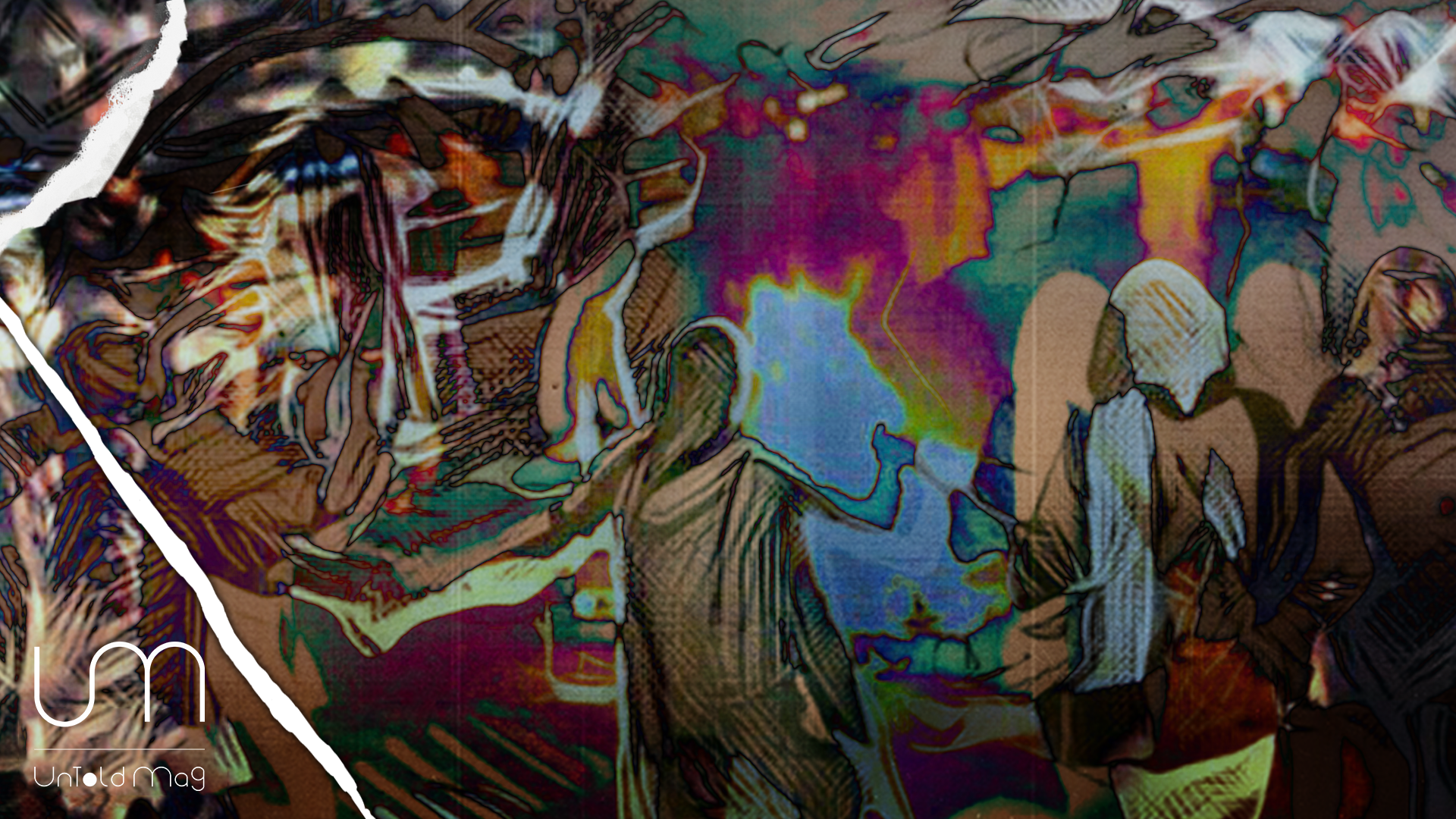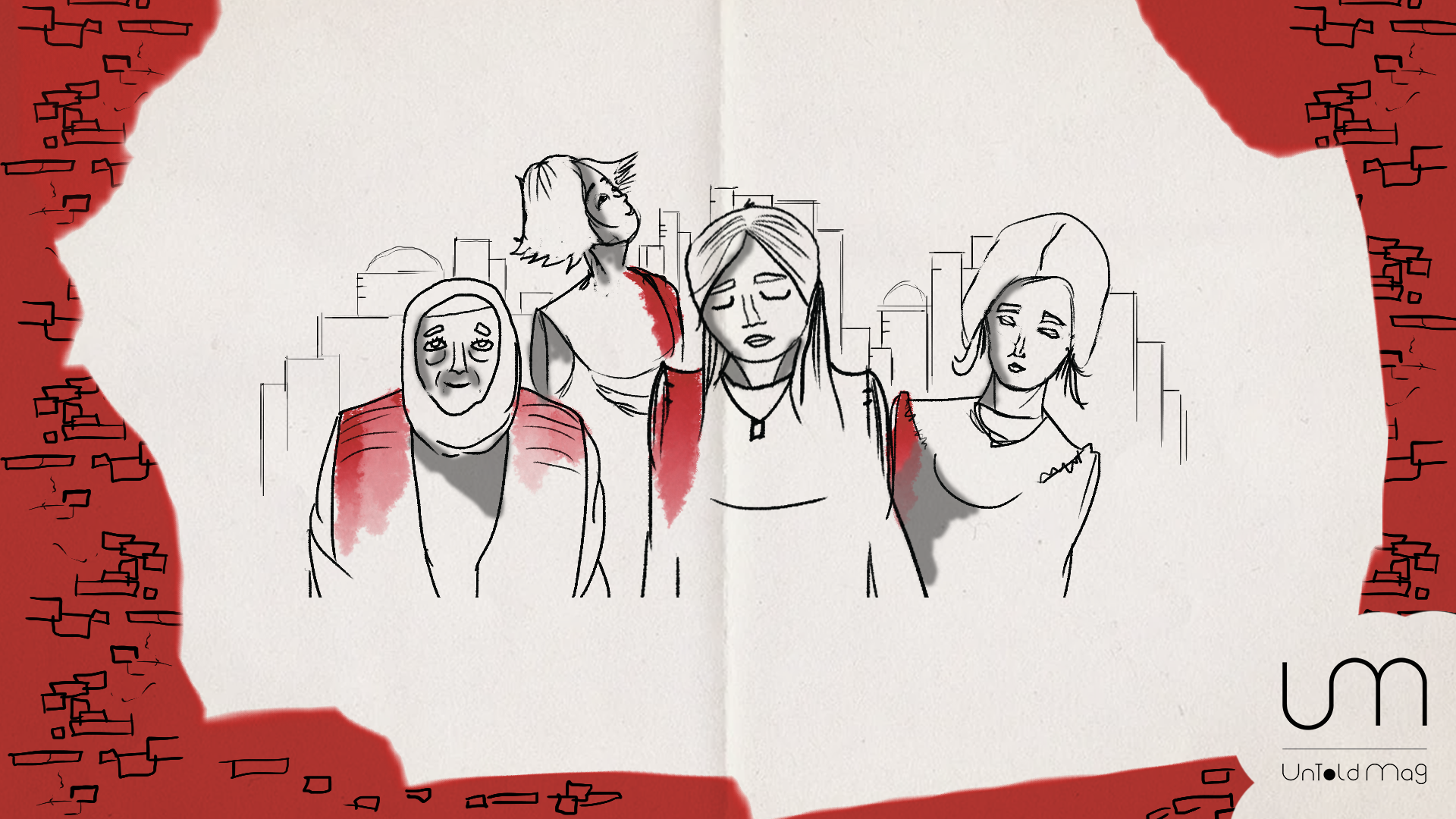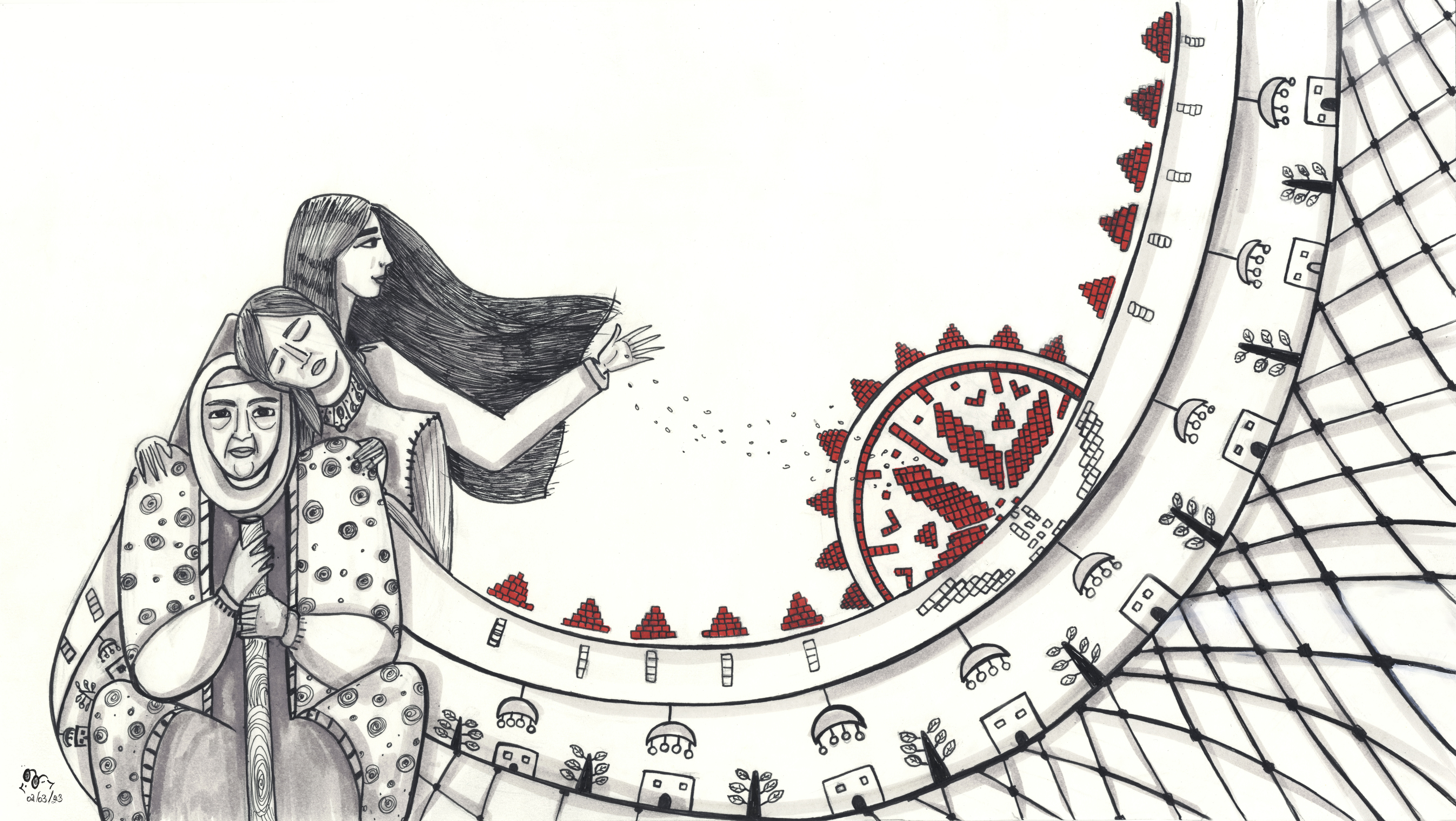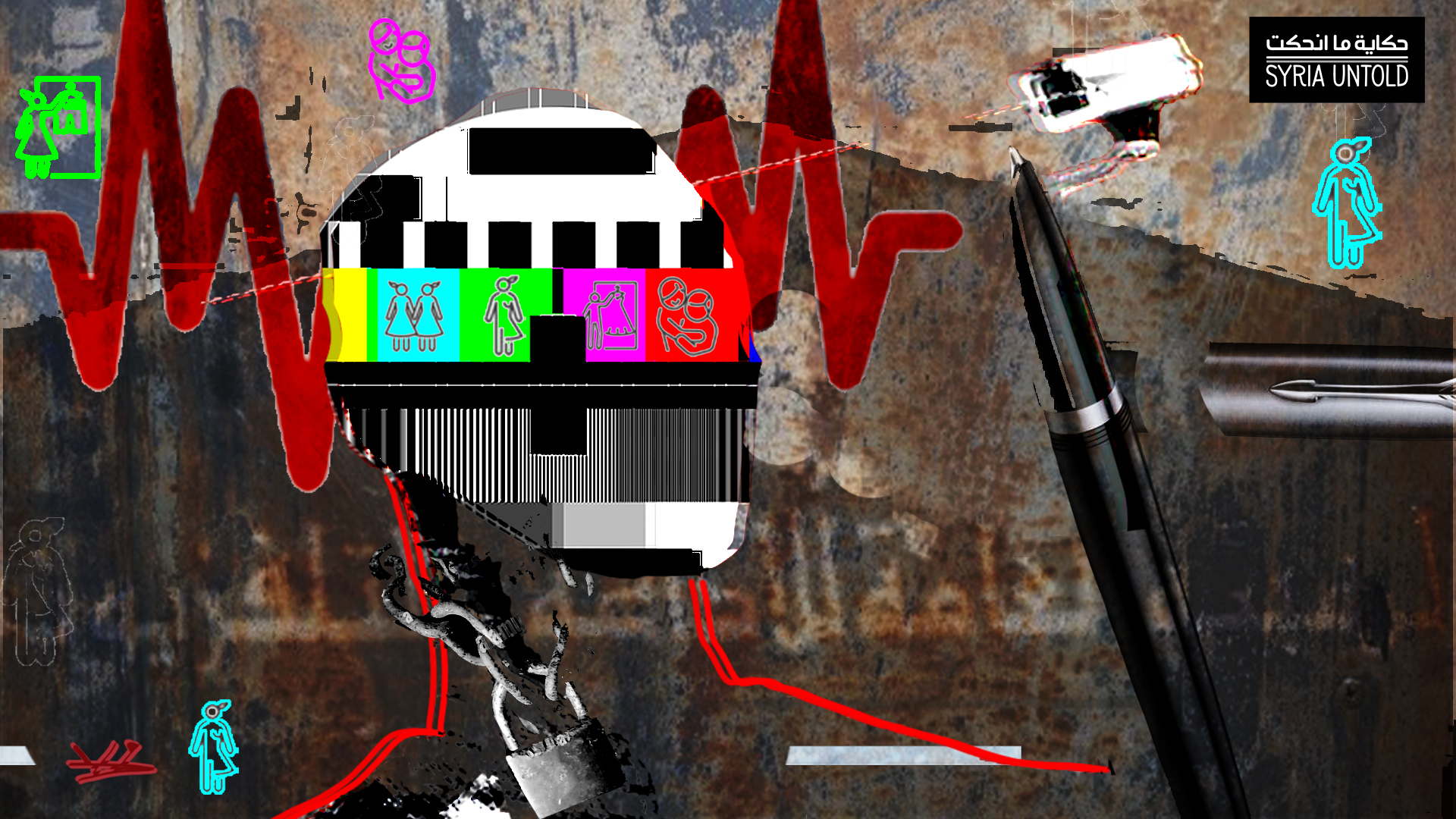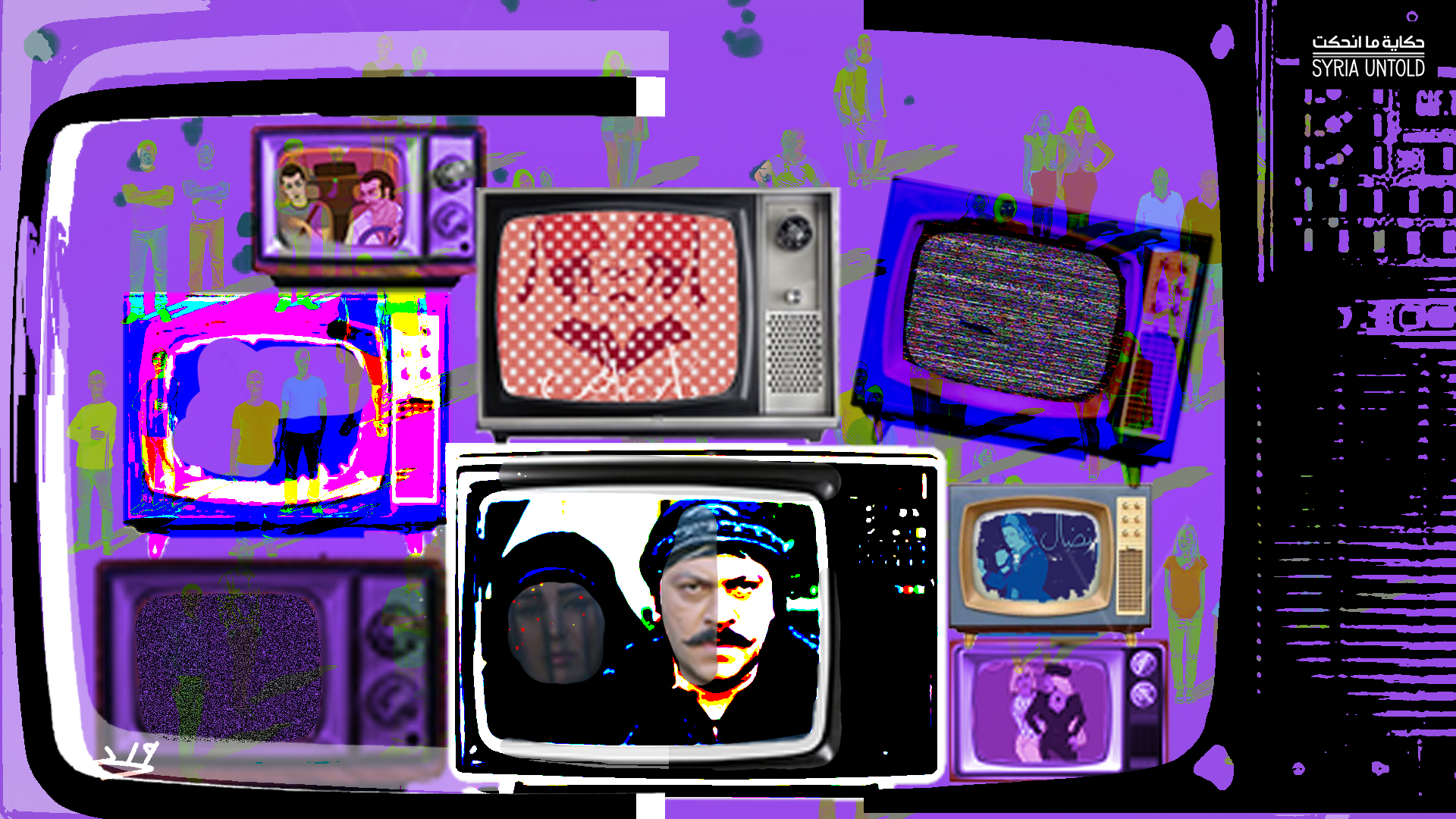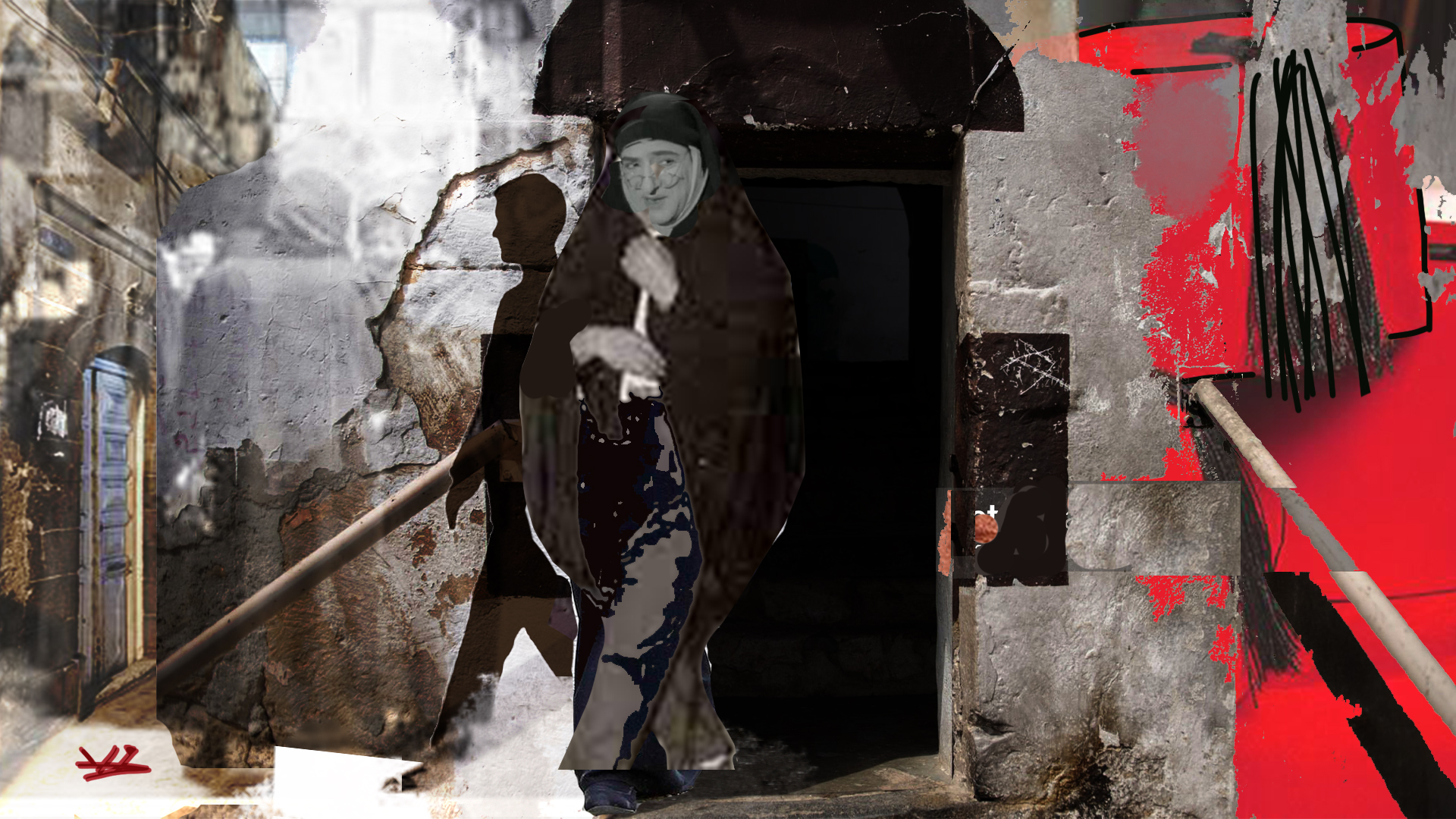Disclaimer: this article contains testimonies that some of our readers may find disturbing or upsetting
When I was young, I once asked my mother about that frowning blindfolded woman we see every time we pass by a courthouse. She told me that it is the blind justice that does not differentiate between people. Back then, my mind could not comprehend the value of the idea. I could not evocate any practical example of this voluntary blindness, except in my school, where the whole class used to be punished when chaos prevailed.
I was raped, at knifepoint, inside my house in 2018. The perpetrator was arrested and sentenced to prison. At the time, many asked me, with smiling faces glowing with relief: "Aren't you happy that the criminal was punished?"
The smile turned soon into surprise and disappointment, when I told them that happiness was not a feeling I would sense for a long time. They quickly asked me in disapproval: "Don't you feel the victory to achieve justice and restore your right?" The word truth thus entered, like the word justice, in the dictionary of vocabularies that confuse me. My “right”, as I understand it, is to live in a world without the possibility of being raped in my own home. Imprisoning my rapist or even hanging him will not bring that to me retroactively. As for the victory, the officer who arrested the criminal, or the prosecutor who succeeded in imprisoning him may feel it. Even my friends, beloved ones, followers of the case, and readers of these lines may have felt it. As for my rapist and me –the main protagonists of the story–, we both loss a heavy loss.
Later, I published an article with my reflections on my rape incident, in August 2020. I pointed out that the access to justice depends on power balance between the perpetrator and the victim, as well as their positionality of both the perpetrator and the victim in power balance. As soon as the article was out, I faced a violent attack on social media. I was blamed – me, the rape victim– with a series of accusations ranging from justifying the rape and minimizing its severity, to having Stockholm Syndrome and a bourgeois guilt complex, of intimidating women from reporting, and finally of standing in the way of "justice". This campaign against me left in me a slight nervous breakdown, and more confusion regarding the concept of "justice".
Care to revolt?
12 April 2023
Palestinians are on the frontline of Lebanon’s economic crisis
24 April 2023
A month earlier, in July 2020, the now famous Fairmont case burst out, after a video of a gang rape committed by a group of wealthy family kids circulated. Under public pressure that stirred up on social media, the Public Prosecution Office decided to open an investigation into the incident. In addition, in an unprecedented move, the National Council for Women published a statement calling on the victim and witnesses to come forward to collaborate with the “justice” system and testify. It even promised not to subject them to any legal accountability if they disclose their identities, ensuring their protection against any ill-treatment. Amid the feminist celebration of what was considered a great victory (as this was the first time in history that there NCW was coming-out to defend victims of rape), and the coming restoration of the victim’s rights, we learned that the prosecution detained the witnesses, and charged them with debauchery after searching their phones and seeing their personal photos unrelated to the case. Not only, but while the witnesses were arrested and accused, the original defendants (the ones that hadn’t already fled the country) were released for lack of sufficient evidence, and the case was closed in 2021.
I was right about justice then, but, of course, no one apologized. No one remembers you once your case is over, we move on to the next one.
In December 2020, A few months after publishing my “infamous” article, the blog “Daftar Hekayat” published 6 anonymous testimonies accusing the film-director Islam el-Azzazy of a series of violations and power abuse, including harassment and rape. When I posted on Facebook that I was aware of the truthfulness of two of the testimonies, and that I knew the testifiers personally, I received vast acclaims from the same social media audience that stigmatized me for Stockholm syndrome and obstruction of justice a few months earlier. On the other hand, the director asked his accusers to address their complaints to the "justice". He even filed a lawsuit against me. Suddenly, I found myself brought to "justice". It was the same “justice” that ruled to fine, before me, my friend Rasha Azab ten thousand pounds on charges of insulting Islam el-Azzazy, because she spoke publicly about the testimonies against him. This "justice" sentenced me to the maximum penalty, a 50 thousand pounds fine and a 20 thousand pounds compensation, because I "violated the values of the Egyptian family, deliberately disturbed the "victim" [ironically referring to el-Azzazi with this name] and disclosed personal information about him without his permission!" This "justice" also stated in its merits that it disregarded the veracity or mendacity of the allegations mentioned in my statement. This "justice" doesn’t care to verify whether el-Azzazy was a rapist or not, as long as I confessed my heinous crime, which is writing on Facebook.
These accidents raise some question about the possibility to pursue “justice” by resorting to the state and its mechanisms, through legal tracks and judicial system. However, even if we consider the alternative paths suggested by the rise of #MeToo, we find that the concept of justice is equally confusing and perhaps disturbing. In Egypt, in November 2017, an email circulated where a former employee of a civil society organization, accused the head of the organization, who was also a presidential candidate at the time, of sexual harassment and abuse of power. She also accused one of the former organization employees of rape during the same year. Her e-mail, which was sent to a mailing list including dozens of human rights activists in Egypt, started a new trend of sharing testimonies about sexual harassment, both anonymously and non-anonymously. At that time, the e-mail author confirmed her reluctance to legal recourse or to cooperate with internal investigation committees.
I was right about justice then, but, of course, no one apologized. No one remembers you once your case is over, we move on to the next one.
However, as soon as the e-mail came out on social media, calls for “justice” went viral, regardless of whether the processes aimed by these demands were against the complainant’s wishes. For several weeks, some voices demanded the cancelling and shunning of the accused at any cost. Others cried out that it is a conspiracy against the opposition’s sole representative. Meanwhile, the members of the political party of the accused person decided to proceed with the investigation procedures despite the complainant's refusal to participate in their pursuit of justice. Voices shrieked accusing these party members of complicity with the accused, staging a mock investigation, and the reproduction of reactionary mechanisms that will not bring justice to the complainant. At the same time, the incident’s witnesses exchanged fiery posts, recounting the details of the incident from their angle, whether out of conscience or to disclaim responsibility. Although the word "justice" was resonating here and there, the space dedicated to the complainant, her eligibility, desire, and integrity in all these discourses, was diminishing and even entirely disappearing.
Clearly, the fact that one of the defendants was an opposition presidential candidate in a broader political context where the civil and democratic forces were concerned about the victory of a military candidate (as it then happened), was a crucial factor in the scale of the hustle surrounding the case, and the direction it took in the public debate. However, the way people reacted to this case shares commonalities with similar cases which broke out over the following years.
In all these cases the same strategy of publishing testimonies, whether anonymous or not, and publicly shaming the perpetrator of the abuse was employed. Voices have been raised, calling for punishing the accused, whether by exposing, boycotting, or dismissing them. Sometimes this escalated into demanding to boycott whoever had a close or distant relation to them. Meanwhile, other voices have demanded internal investigation and accountability committees, and some wondered how to “encourage” the accusers to file official complaints. Others have cut-it short and demanded the Public Prosecutor to investigate the case in order to punish the guilty and set an example.
But the main thing that all these cases have in common is that they show that, apparently, there is an implicit agreement among all parties that justice is something subsequent to the incident. In this regard, this approach aligns with the state’s concept of justice. Whether by appealing to the police and the judiciary or using alternative mechanisms such as independent commissions of inquiry or shaming and boycotting campaigns, this approach assumes that justice is served by holding the perpetrator accountable or punishing him first, and then compensating the victim - if possible. However, even this last aspect is often absent since it is widely assumed that the perpetrator’s punishment per se is a compensation for the victim and a restoration of her rights. The deeper aspect of this approach is perceiving justice as an abstract meaning, with semi-sacred qualities, which goes beyond being a goal that we strive to achieve, to restore people’s rights. Justice here is a sacred collective right that transcends the parties to the case. Just like the state that prosecutes and imprisons the perpetrator even if the victim decides to forgive him. Hence, justice turns from something that the “group” seeks to achieve to redress injustice befallen on one of them, into a legitimate right of the “group”. This right must be achieved, albeit at the expense of the victim and her desires.
Let’s take the case of the e-mail accusing the presidential candidate in 2017 as an example once again. Although the plaintiff’s asserted her reluctance to go down the route of committees and investigations, party members decided to convene a committee and open an investigation without her. They did that out of a sincere sense of responsibility to achieving “justice”, even if the result was weak and frustrating, of course, due to the absence of the complainant and the main witness in the case. The latter’s testimony needed to be tied to the outcome of this investigation. The importance of "achieving" justice thus exceeded the plaintiff's desire and right to choose.
Although the word "justice" was resonating here and there, the space dedicated to the complainant, her eligibility, desire, and integrity in all these discourses, was diminishing and even entirely disappearing.
Let’s take my own case, when I was raped at knifepoint, I made a conscious decision not to report the rape and just report the armed robbery. I made this decision for two reasons. The first was due to my principles, as I am against the death penalty. I did not want to risk the rapist getting the maximum penalty for armed rape. The second reason was that I did not want to expose myself to the horror and indignity of a forensic examination to prove the rape. Despite my asserted concerns, some friends did not hesitate to try to convince me to report the rape,. Hundreds of commentators on social media did not hesitate to attack me and criticize me after I published my article for letting the criminal "evade justice". Justice means inflicting on him the maximum possible punishment, even if this punishment is death penalty that I am against. Even if that means that I would have to undergo an examination by a group of doctors - as if the violation of my body and my dignity was not enough. They would therefore violate my body again in the name of "Justice", while asking me if I am a "Miss or Madame".
By the same token, when an anonymous sexual violence testimony circulates, demands for justice and the arrest of the perpetrator are raised. Some even take the initiative and address the General Prosecutor’s Office to open the official investigation, heedless to the opinion of the concerned person. This is regardless of her desire and willingness to delve into that path, with all what it entails in terms of medical examination, investigations, interrogations, questioning and moral violation, in addition to the possibility of putting her life in danger.
The reality is that we live in a narrow-minded, conservative society that blames the victim and accuses her of adultery, and we are ruled by a regime that imprisons witnesses for debauchery. Nobody ponders that the testifier can in fact opt not to report, and rather chose to remain anonymous. No one considers the possibility that she does not want her family to know what happened, because this may expose her to physical and psychological harm, deprive her of free movement, or endanger her own life. No one thinks of her fear of revenge. No one ponders, not because we are evil or careless, but because we have been trained to think of justice as in itself a lofty goal and a glorious cause. It therefore must be achieved even if it is against the victims’ will.
I would like to underline that I am not asking to phase out the state’s formal justice system. I don’t even believe that it is possible or logical to avoid it completely in the world we live in. I am neither calling for letting the violators without some kind of accountability or punishment. However, I would not "encourage" anyone to resort to the state, just like I will not "encourage" anyone to publish their testimony, expose a harasser, or appear in front of a committee to achieve "justice". I would not encourage them because the choice is theirs alone, and there is no single correct way suitable for everyone. What I would do in return, if one of them faced some kind of violence, and asks for my opinion on resorting to the state, publishing their testimony, or requesting the formation of a committee to investigate, is to provide them with full transparency on the advantages and disadvantages of each mechanism. They will thus be able to make an informed decision, as they are the only one who will bear the consequences. Most of us will forget the whole thing and move on with our lives after “justice takes its course” and the perpetrators receive their punishment. Had the victim/survivor chosen to remain silent, or to forgive, or to do nothing at all, I would not hold them responsible for the others whom the offender might violate in the future because “they have let him get away with it”. Victims/survivors are not tools for us to use to achieve justice and purify the society.
It is understandable to consider justice as a lofty goal for the public interest. It makes us feel comfortable thinking we completed the mission when every criminal receives his punishment and becomes an example. However, the holy war for justice and the purification of society is based on the assumption that the offenders are corrupted individuals who broke the approved code. This assumption contradicts the idea that power imbalance, which results in different forms of violence and discrimination, is a systemic matter. Confronting it requires more than punishing or holding accountable the violence perpetrator. There is no doubt that we all proceed from a sincere desire for a safer, fairer and more equal world. There is no doubt that we are forced to confront the world with our backs to the wall. We live under regimes that benefit from power imbalance and feed it, regimes that are reluctant or fail to play their institutional role in protecting us. They even may pose a threat to us, forcing us to play their role within our circles. We thus form committees, investigate, rule, hold accountable, and punish, as if alternative justice means that our independent departments implement traditional justice instead of the state. Perhaps then, what we need is to untie the blindfold Justice to achieve an insightful justice able to see the subtlest differences rather than being blind to them. We need to try to think of justice as a tool- not as an abstract and lofty goal - and to develop it as a collective responsibility both within our close circles and broader societies. This might be possible if we constantly rethink of our role in creating spaces where violence is less likely to occur in the first place, rather than dealing with it only retrospectively.



